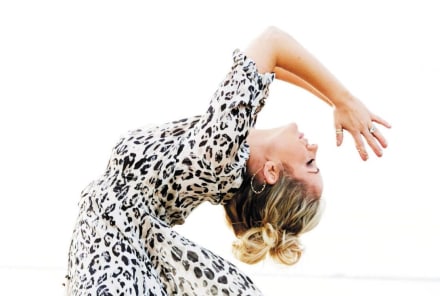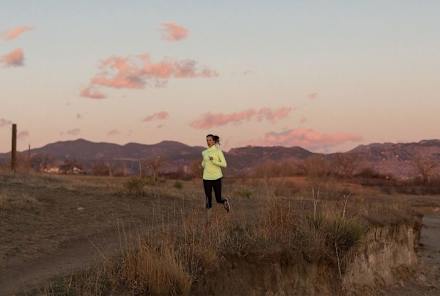Advertisement

Things I know about colds (besides the fact that they all stink): (1) If there is a cold to be had, my husband will have it, and (2) no, his cold is worse than your cold. The tissues stack higher, the nose-blowing is ramped up to a 100, and the complaining is…well, you probably get the gist.
But it turns out there's some evidence that suggests I may need to relinquish my deeply held belief that my husband simply can't hack it. A new study found the severity of your cold is probably determined by the specific kinds of tiny microscopic organisms happen to live inside your nose. Yes, you read that correctly.
Researchers at the University of Virginia Health System have discovered1 the natural bacteria in people's noses fall into six different patterns of nasal microbiomes. After examining 152 volunteers' noses before and after being given the cold virus, they found those different microbiome patterns led to distinct differences in the severity of the cold symptoms, as well as how much of the virus ends up making its home inside the body. For example, people with a lot of the Staphylococcus bacteria hanging out in their noses had more nasal symptoms when they got the cold than the folks with less staph.
"The first surprise was that you can kind of identify these different buckets that people kind of fit into, and then the fact that the buckets seem to have some impact on how you respond to the virus and how sick you get was also interesting," said Ronald B. Turner, M.D., a pediatrician with the University of Virginia School of Medicine and one of the study authors, in a news release. "There were effects on virus load and how much virus you shed in your nasal secretions. So the background microbiome, the background bacterial pattern in your nose, had influences on the way that you reacted to the virus and how sick you got."
It should be noted, however, that it's not the teeny, tiny things living in your nose (yeah, there's a whole family of stuff getting cozy in there) that cause a cold—that's the work of the actual cold virus. Certain microorganisms living in your nose might be fanning the cold flame, but there would need to be more research to get to the bottom of that. The researchers did give the participants probiotics to see if helpful bacteria could affect the nose microbiome's composition and help relieve the cold. But unfortunately the probiotics didn't do much of anything, meaning more tests will need to be done to understand how to put these findings to good use.
One take-away might simply be knowing that if your colds do seem stronger and longer-lasting than everyone else's around you, there might be a biological reason for that. These findings support the widening body of research that suggests how important overall microbiome health really is and why it's worth it to go out of your way to get your microbiome back in balance.
Meantime, if you do feel like your colds are really kicking you in the butt, there are definitely some holistic remedies that can help ease symptoms: Ingesting diluted apple cider vinegar, skipping sugar-laden foods, and simply resting are crucial to feeling better faster, and garlic, ginger, and honey also won't hurt in finding you some relief.
But don't go claiming any most-unique-nasal-microbiome-pattern-in-the-world titles just yet. Because I have a feeling my husband's colds may still be the rarest and most distinctive of them all. (Love you, honey.)
Watch Next
Enjoy some of our favorite clips from classes
Enjoy some of our favorite clips from classes
What Is Meditation?
Mindfulness/Spirituality | Light Watkins
Box Breathing
Mindfulness/Spirituality | Gwen Dittmar
What Breathwork Can Address
Mindfulness/Spirituality | Gwen Dittmar
The 8 Limbs of Yoga - What is Asana?
Yoga | Caley Alyssa
Two Standing Postures to Open Up Tight Hips
Yoga | Caley Alyssa
How Plants Can Optimize Athletic Performance
Nutrition | Rich Roll
What to Eat Before a Workout
Nutrition | Rich Roll
How Ayurveda Helps Us Navigate Modern Life
Nutrition | Sahara Rose
Messages About Love & Relationships
Love & Relationships | Esther Perel
Love Languages
Love & Relationships | Esther Perel


















